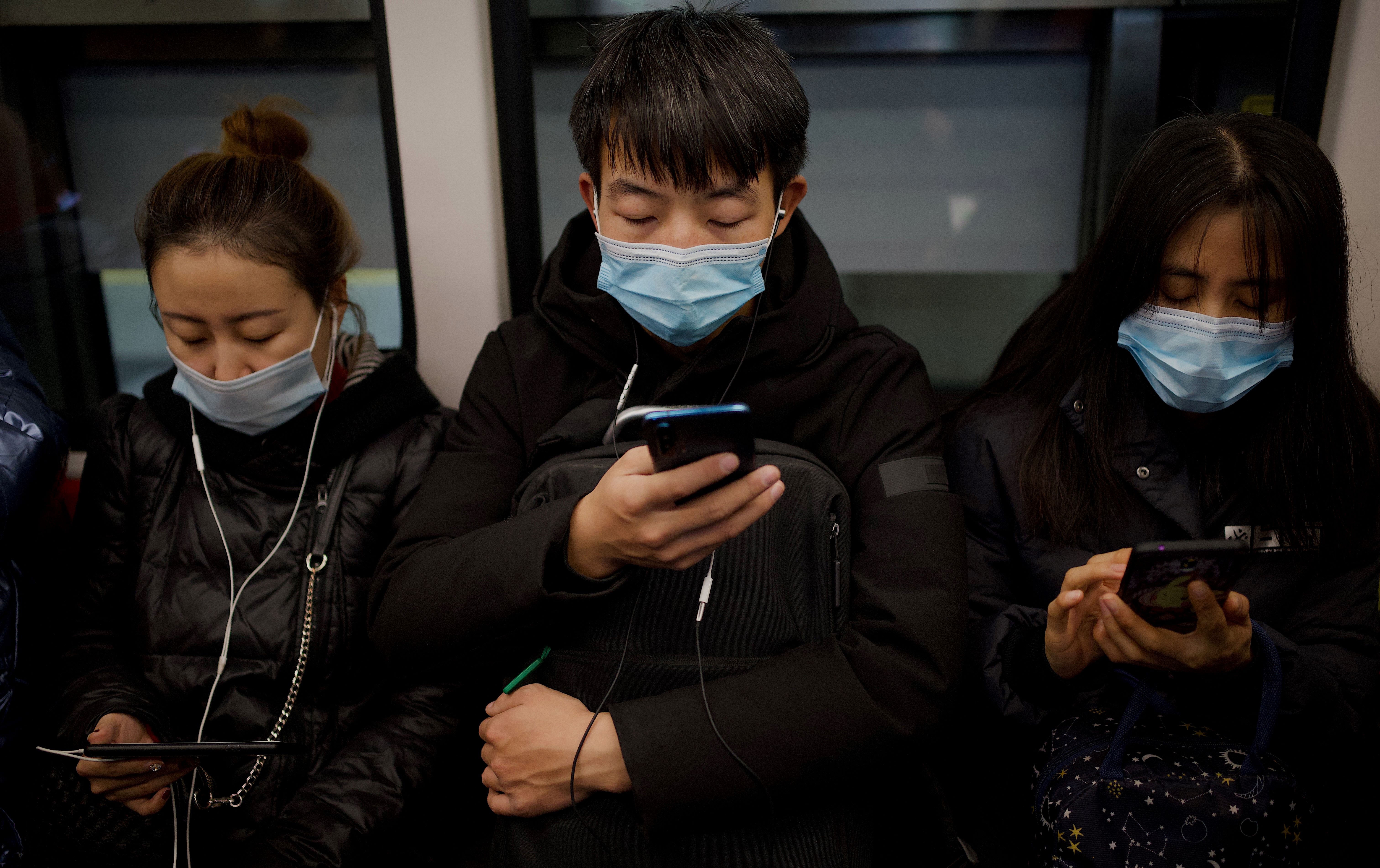
People wearing face masks use their mobile phone on a subway in Beijing on December 19, 2020. (Photo: AFP)
To health experts, the epidemiological survey is an important map to track a patient's movements to find the cause of a new COVID-19 outbreak, but to many ordinary Chinese, the survey means more: It is the sketch of a city - a miniature of the lifestyles of the people and resonance of their spirit.
Working hard, fighting hardship, always looking on the bright side … this is how residents in Beijing speak of their lives in an epidemiological survey of the latest sporadic cases.
Detailed tracking of the three confirmed COVID-19 cases in Shunyi district, northern Beijing vividly demonstrates the rigor of life in the Chinese capital city.
The first case is a 34-year-old man who lives in a modest house in Shunyi and works in Haidian, west Beijing with a 50-kilometer round-trip on the subway. After finishing a day of work, he comes home and continues to study for the post-graduate examinations.
Apart from working and studying, his life is filled up with daily shopping and raising his child. He probably never knew that on the day before he finally was ready for the tests, he would have contracted the coronavirus and had to abandon the tests needed to achieve his dream.
The second case is a 32-year-old woman who works in an electronic bike base in Shunyi and also works part-time at an SF Express transit depot from 10 pm until 2 am. Her traces show that doing this part-time job is a normal thing in her life.
The third one is 40-year-old driver in a car-hailing platform, with traces showing that he had been driving for 17 hours a day.
"Beijing's epidemiological survey shows the capital city is full of migrant workers who have been fighting, struggling all the time with bitterness and sweetness," Chinese netizens left their remarks on social media platforms.
The city's sketch in epidemiological survey is in a stark contrast to other cities across the country.
The survey records the lives of close contacts in Beijing as "going to work, attending conference, eating steamed bread, working overtime, taking bus." Those in Chengdu, South China's Sichuan Province say they "enjoy bars, getting high in clubs, getting nailed;" In neighboring Chongqing Municipality as "eating hotpots, cakes;" In Guangzhou, South China's Guangdong Province as "drinking teas in the morning, afternoon, and night;" In Changsha, Central China's Hunan Province as "drinking milk tea, playing mahjong."
Over the weekend, a post went viral on Sina Weibo, which reads "gentle advice to Beijing friends: for decent epidemiological survey results, please go to some fancy places, because this is probably the only chance in your lifetime to showcase your lives to the whole country."
Some Beijing residents began to mock themselves. "What do we eat today? How about we go to eat Peking duck to make our lives more elegant?" some said. In this difficult year, everyone lives hard in their own way as shown in the epidemiological survey.


